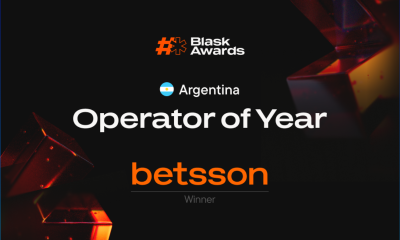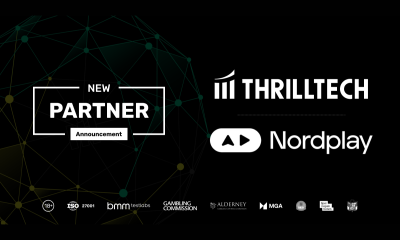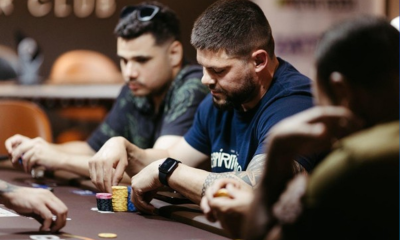eSports
ESIC Publicly Addresses False Narrative That the Commission Works for the Esports Betting Industry

The Esports Integrity Commission has, over the past few years, mistakenly been accused of working for the esports betting industry or being an organisation formed by the betting industry for the betting industry’s purposes. Whilst we have historically tried to address this misconception privately, it has now surfaced again in a way that damages the integrity of esports and the Commission in a way that needs to be publicly addressed.
BACKGROUND CONTEXT OF STATEMENT
First: In Nevada a Bill being sponsored through the State Senate by Senator Ben Kieckhefer, SB 165, seeks to establish an Esports Commission for the regulation of esports related activities in the State. In the sponsoring process, the Judiciary Committee considering SB 165 were told that ESIC, (who has worked with the Nevada Gaming Control Board since 2016 and was a founding member of the Nevada Esports Alliance) was in favour of the Bill. This is false. ESIC opposes SB 165 and has now taken steps to provide explanations to the Committee relating to its position. However, quite apart from certain parties purporting to speak on our behalf without authority, an underlying narrative emerged that: ‘ESIC’s views should be dismissed because the Commission is a servant of the betting industry’.
Second: The same false narrative was put forward to the Entertainment Software Association (“ESA”), the body representing most video game publishers and developers and all of those who publish titles prominently used in esports, by some of its members urging the ESA not to engage with ESIC because ESIC was alleged to “work for the betting industry”.
Third: Disaffected players banned by ESIC for betting related offences and some of their supporters have been reported to be coordinating a broad effort to spread this same false narrative that ESIC works for and serves the betting industry in an attempt to undermine the legitimacy of competitive integrity in esports. This coordinated effort has been reported to ESIC to include rhetoric such as ‘ESIC falsely asserting certain matches are fixed so that the betting operators don’t have to pay out the winning bets on those matches’. This is both an ignorant and damaging narrative not only to ESIC but to the integrity of esports broadly. Such assertions would be entirely antithetical to the purpose and demonstrated work ESIC has undertaken for the sake of competitive integrity in the esports industry for more than five years.
STATEMENT
Despite the differing points of origin and the various malicious motives of those propagating them, all of these narratives need to be addressed and resolved and so ESIC Commissioner, Ian Smith, has considered it prudent to make the following statements:
“ESIC is neither for or against betting on esports. We are not advocates for betting nor crusaders against it.
It is noted, however, that betting on esports is a form of entertainment for most bettors and drives sponsorship revenue and fan engagement for the esports ecosystem. Conversely, the existence of betting opportunities does also raise challenges including, of particular concern to ESIC and central to our mission, the incentive for punters to commit betting fraud by match-fixing. In this respect, our role is to protect the esports industry from that danger.
ESIC exists for the esports industry; primarily for the protection of the players who would be the first and main casualty of any match-fixing scandal (please refer to the detrimental effects that match-fixing has historically had on the competitive Starcraft2 esports scene following the 2015/16 match-fixing scandals in Korea).
When betting fraud is perpetrated, competitive integrity is tarnished (among other negative outcomes). Coincidentally, the legitimate esports betting industry also suffers loss when betting fraud is committed. Therefore, it is of common and synergistic interest to both the esports industry and the betting on esports industry to address the issue of match-fixing through ESIC.
In fact, it is impossible to combat match-fixing without working with the legitimate esports betting industry. Betting data is at the heart of determining whether or not a match might be fixed and betting data is the key evidence in any prosecution of a match fixer. Furthermore, every traditional sport works with the betting industry to combat match-fixing and relies upon such data in a similar manner. This approach is not unique to ESIC.
ESIC is a not for profit members association – we are owned by our members. We have two categories of membership: Our esports members (primarily Tournament Organisers) and our Anti-Corruption Supporters (primarily betting operators, but also government and state gambling regulators, law enforcement, monitoring companies, data providers and industry bodies). From a constitutional point of view, the two do not overlap. Only the Esports Members determine the strategic aims and priorities of ESIC. The Anti-Corruption Supporters participate in our Suspicious and Unusual Betting Alert Network in service of ESIC and our Esports Members. In other words, ESIC works with the betting industry on behalf of the esports industry; we do not work for the betting industry. Accordingly, this dynamic serves only to promote competitive integrity and legitimacy of esports competitions.
Contrary to some assertions, the betting industry does not use us to avoid making legitimate payouts. The primary benefit for betting stakeholders which engage with us is access to what our Suspicious and Unusual Betting Alert Network sees (a network which they also contribute data to).
Importantly, some players are asserting that their betting activity on the game that they play professionally was “innocent”. With respect, that is either naive or disingenuous. No traditional sport allows its professional participants to bet on the sport they play for a living. In the cases ESIC has dealt with, the players against whom we have taken action have bet on the game, league, tournament or match in which they have participated. There is no scenario in which this is acceptable and we will continue to prosecute players who do so where we have jurisdiction. At the highest level of any esports game, the players all know each other, have played with and against each other and have both inside information and the potential to influence each other in a way that gives them an unfair advantage in betting markets and undermines the perception of competitive integrity. In many countries it is also illegal or criminal. Consequently, we are unapologetic about our rule prohibiting betting on the game they play professionally or semi-professionally. This is for the protection of the esports ecosystem and the players in particular. It is not a service to the betting industry but a service to the esports industry broadly in the interest of youth protection, competitive integrity and commercial longevity.”
Conclusion
Individuals attempting to propagate the narrative that ESIC works for the betting industry either have their own adverse agenda or are naïve about the realities of betting and the relationship between esports and betting on esports.
ESIC accepts that the existence of betting in esports is a contentious matter for some people and that they would rather it didn’t exist, but that is not an excuse to ignore the challenges posed by its existence. Any extension of opposition to betting in esports which operates to prohibit or hamper ESIC from effectively engaging with and mitigating the issue of match-fixing through sourcing data from Anti-Corruption Supporters, however, should be entirely discouraged and expelled from the industry. The stark reality is that match-fixing poses a real and demonstrable threat to the youth, competitive integrity, and commercial viability of the esports industry globally. Accordingly, ESIC implores all stakeholders Interested in the common good of esports to work together to combat such threats. Indeed, that includes, of necessity, close cooperation, via ESIC, between the esports ecosystem and the esports betting industry.
NOTE: THIS STATEMENT DOES NOT CONSTITUTE THE INTENDED RELEASE RELATING TO THE AU CS:GO INVESTIGATION. A SEPARATE RELEASE WILL BE MADE RELATING TO THAT INVESTIGATION IN DUE COURSE.
Powered by WPeMatico
2026 summit
HIPTHER Prague Summit Unveils 50% of Its Dynamic 2026 Agenda
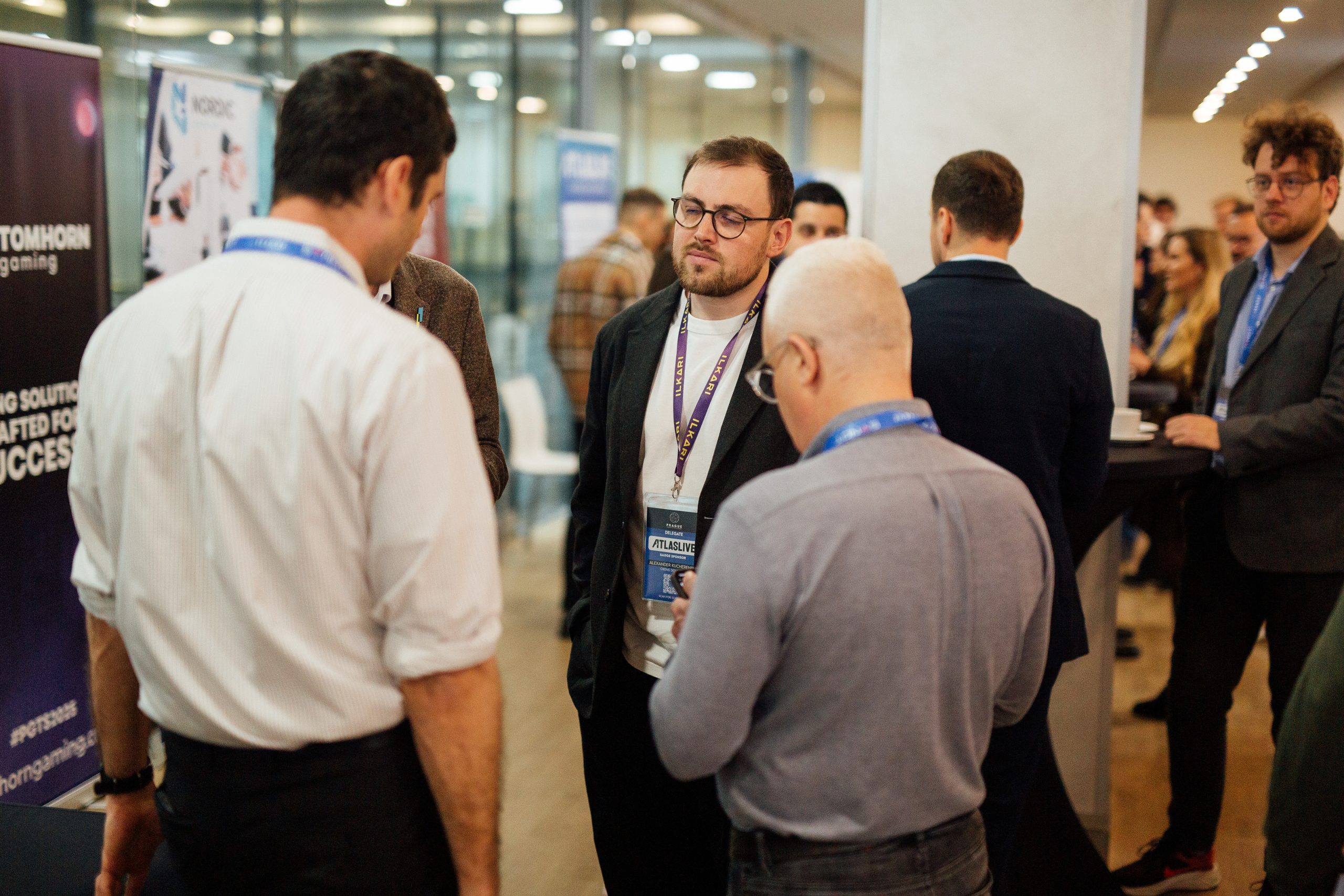
The HIPTHER Prague Summit is shaping up to be one of the most comprehensive events of the year, with an agenda that reflects the fast-evolving landscape of iGaming, fintech, compliance, AI, media, and beyond. With four distinct stages and content spanning two days, the summit promises high-impact insights, cutting-edge knowledge sharing, and actionable strategies for stakeholders across the digital industries.
While only half the agenda has been released so far, what’s already on the table reveals an ambitious and future-forward program. Attendees can expect the remaining schedule—focused on the Expert Panel Stage and HIPTHER Academy—to further raise the bar with industry-leading panels and advanced learning formats.
Stage 1: Compliance & Regulation
This track offers a robust dive into both regional and global regulatory trends, aimed at compliance professionals, legal experts, and decision-makers navigating complex frameworks.
Day 1 will focus on market updates, regulators’ panels, and regional compliance outlooks. Highlights include a Czech Market update, a panel featuring European regulators, and regional overviews from Germany and the Balkans.
Day 2 expands into the global picture, covering enforcement trends, jurisdiction updates from Southern Europe, the USA, and LatAm, and a deep-dive GLI session on certification and trust. The day wraps with an IMGL-led masterclass exploring the intersection of AI, automation, and accountability.
Stage 2: Expert Panels Stage
This track is a powerhouse of innovation-focused dialogue.
Day 1 will feature panels on iGaming, fintech, AI, media, SEO, esports, and business growth. Industry disruptors and thought leaders will gather to unpack the trends driving momentum across verticals.
Day 2 will turn the spotlight to deep-dive panels with operators, suppliers, and advisors sharing battle-tested strategies, future bets, and lessons from scaling globally.
Stage 3: Main Focus Stage
This stage is split into two powerful themes across both days.
Day 1 is the Keynote Arena, with standout talks on branding, visibility, growth, and deal-making. Sessions like “LinkedIn as a Dealflow Engine” and “Branding in the Attention Economy” offer tactical insights for companies looking to sharpen their competitive edge.
Stage 4: HIPTHER Academy
Designed for hands-on learning and skill development, this stage blends education with real-world application.
Day 1 offers masterclasses, workshops, and practical learning sessions, setting the tone for deep engagement.
Day 2 will feature advanced education formats, including certification-oriented sessions, ideal for professionals looking to level up with verified credentials.
Don’t Miss Out – Secure Your Spot Now
With limited availability and high interest across the industry, now is the perfect time to register. Be among the first to access cutting-edge insights, connect with top-tier professionals, and help shape the future of digital industries.
Register today for HIPTHER Prague Summit 2026 and be part of the conversation that drives the next wave of innovation.
The post HIPTHER Prague Summit Unveils 50% of Its Dynamic 2026 Agenda appeared first on Eastern European Gaming | Global iGaming & Tech Intelligence Hub.
Dota 2 esports
Esports Nations Cup 2026 Announces $45 Million Prize Fund for Players, Clubs, and National Teams
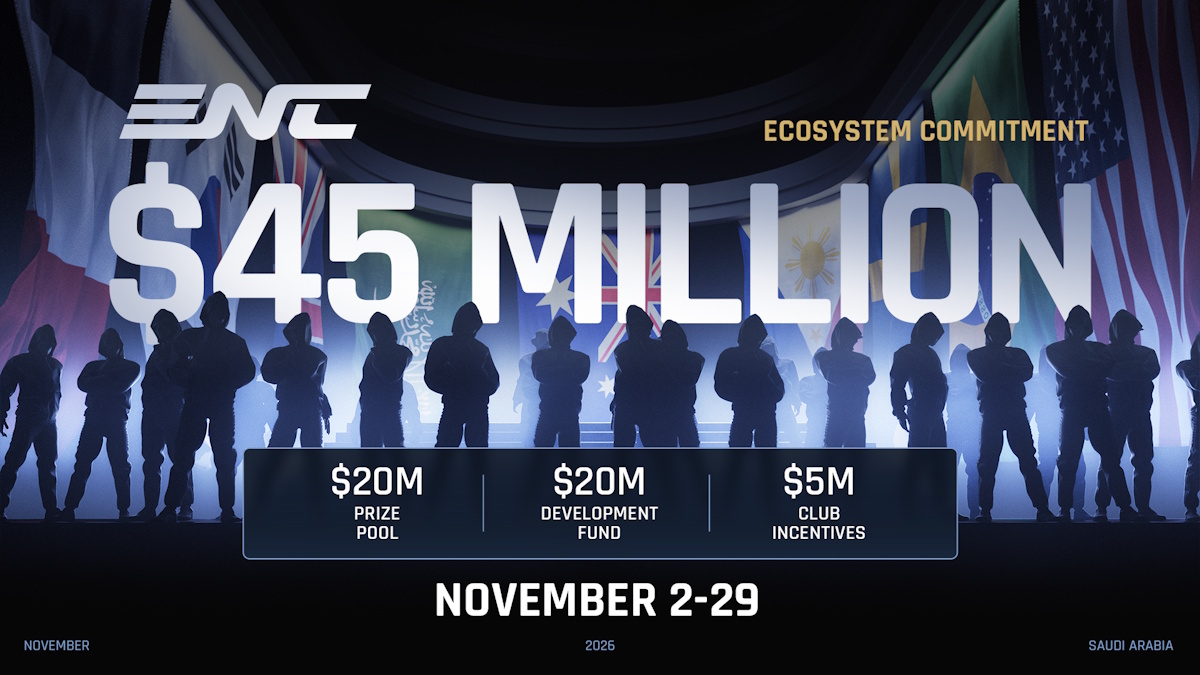
The Esports World Cup Foundation (EWCF) has officially announced the inaugural Esports Nations Cup (ENC) 2026, bringing a new national team-focused layer to the global esports calendar.
Set to debut in Riyadh, Saudi Arabia from November 2–29, 2026, the ENC will feature elite competition across 16 esports titles, emphasizing national pride, iconic rivalries, and global fan engagement.
The ENC 2026 introduces a $45 million funding commitment to empower players, coaches, clubs, and national teams through a structured and sustainable prize model. This investment supports the growth of esports globally and ensures fair, performance-based rewards for all participants.
Three-Part Prize Model: Players, Clubs, and National Teams
The ENC 2026 prize framework is designed to promote equality, transparency, and long-term growth across the esports ecosystem:
- $20 million directly awarded to players and coaches across 16 esports titles
- $5 million in club incentives for teams releasing players to participate, tied to player performance
- $20 million via the ENC Development Fund to support national team operations, logistics, travel, marketing, and program development
“National teams add a compelling layer to esports, rooted in identity and pride,” said Ralf Reichert, CEO of EWCF. “Our prize model rewards performance, supports clubs, and strengthens the long-term pathways for players and national programs.”
Player-Centric and Transparent Prize Structure
ENC 2026 guarantees all qualified participants at least three matches, with equal placement earning equal pay across all titles. Coaches are rewarded alongside players for the same placement. Key prizes include:
- First place: $50,000 per player
- Second place: $30,000 per player
- Third place: $15,000 per player
For team titles, payouts scale with roster size, ensuring consistent and fair distribution.
Global Growth and Rotating Host Cities
The ENC will rotate to major international cities after the Riyadh debut, establishing a biennial esports tournament that provides reliable structure for long-term planning by players, partners, and national federations.
Confirmed titles for ENC 2026 include Mobile Legends: Bang Bang, Trackmania, and Dota 2, with additional games to be announced soon.
A New Era for National Esports
By combining national representation with global esports professionalism, the ENC offers players a chance to compete for national pride while connecting fans to elite-level esports. Clubs benefit from performance-linked incentives, and national teams receive long-term support to expand development pathways and enhance competitiveness.
For updates and further information on the Esports Nations Cup 2026, visit esportsnationscup.com and follow ENC on X, Facebook, Instagram, TikTok, and YouTube, and the Esports World Cup Foundation on LinkedIn.
The post Esports Nations Cup 2026 Announces $45 Million Prize Fund for Players, Clubs, and National Teams appeared first on Eastern European Gaming | Global iGaming & Tech Intelligence Hub.
betting brand marketing
Esportes da Sorte Secures Major Sponsorship for FIFA World Cup 2026 Broadcasts on SBT and N Sports
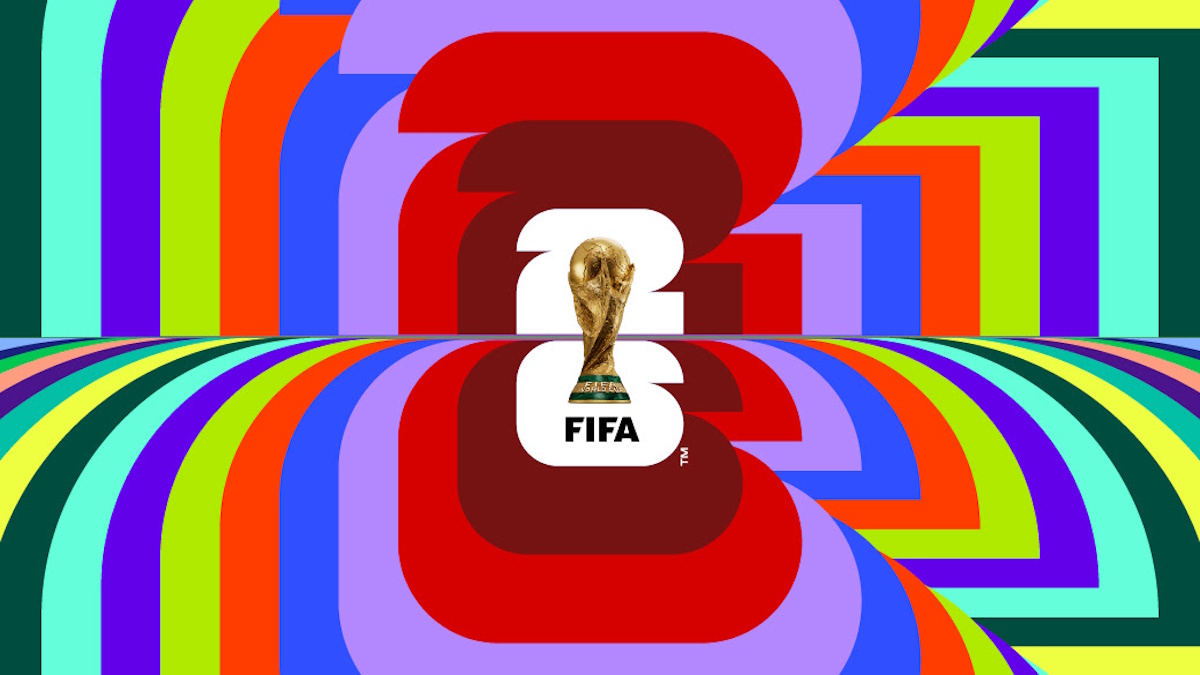
Leading Brazilian iGaming brand Esportes da Sorte has announced a high-profile sponsorship agreement for the FIFA World Cup 2026 broadcasts on SBT and N Sports, reinforcing its presence during one of the most influential sporting events in the world.
The partnership includes extensive brand activations throughout the entire tournament, spanning television, streaming, and digital media.
The sponsorship package delivers wide national exposure through SBT’s free-to-air broadcasts, simulcast coverage, the +SBT streaming platform, and the N Sports pay-TV channel. In addition to traditional broadcast placements, Esportes da Sorte will activate across the broadcasters’ digital ecosystems, including official websites, YouTube channels, and other owned digital platforms.
According to Marcela Campos, Vice President of the Esportes Gaming Brasil Group, which owns the Esportes da Sorte brand, the initiative strategically aligns the company with one of the largest moments of audience engagement in global sport. The FIFA World Cup represents a unique opportunity to amplify brand recall, increase engagement frequency, and strengthen emotional connections with football fans.
“The World Cup is a global event that concentrates attention, conversation, and excitement on an unparalleled scale. In Brazil, it represents one of the most powerful moments of sports audience mobilisation. Maintaining a consistent and high-frequency presence on SBT’s broadcasts allows us to expand our brand positioning and deepen Esportes da Sorte’s connection with the football fan experience,” Campos explained.
On television, Esportes da Sorte will feature prominently through promotional spots, opening and closing idents, commercial break placements, and video inserts. The agreement also includes sponsorship of a dedicated FIFA World Cup 2026 programme, airing throughout the competition, alongside integrated editorial content within the broadcasters’ schedules.
Digitally, the brand will be embedded within the official World Cup broadcasts on SBT and N Sports, while also appearing in additional content initiatives produced by both channels. This multi-platform strategy ensures comprehensive coverage of the tournament, maximising visibility and engagement across broadcast and online audiences.
With this partnership, Esportes da Sorte further cements its position as a major player in Brazil’s regulated iGaming market, leveraging the cultural power of football and the global reach of the FIFA World Cup to strengthen brand equity and long-term consumer affinity.
The post Esportes da Sorte Secures Major Sponsorship for FIFA World Cup 2026 Broadcasts on SBT and N Sports appeared first on Eastern European Gaming | Global iGaming & Tech Intelligence Hub.
-

 BetPlay4 days ago
BetPlay4 days agoBlask Awards 2025: Betano, Caliente, BetPlay, Betsson and others define Latin America’s iGaming landscape
-

 iGaming5 days ago
iGaming5 days agoMajestic Claws Hold & Hit leaps into Spinomenal’s slots portfolio
-

 Canada5 days ago
Canada5 days agoComeOn Launches New Marketing Campaign in Ontario
-

 Latest News5 days ago
Latest News5 days agoThrillTech partners with Nordplay Group to launch ThrillPots across Nordic-facing casino brands
-

 DEGEN Studios5 days ago
DEGEN Studios5 days agoDEGEN Studios brings Wild West chaos to the reels with Sunset Showdown
-

 Brightstar Lottery PLC4 days ago
Brightstar Lottery PLC4 days agoBrightstar Lottery Delivers Industry-Leading Sales Force Automation Solution to Ontario Lottery and Gaming Corporation
-

 bingo halls4 days ago
bingo halls4 days agoBingo Halls and Casinos in Colombia Increased Their Contributions to Healthcare System by 9.3% in 2025
-

 Capped Range4 days ago
Capped Range4 days agoWhat A Capped Range Means In Poker With Three Common Spots




